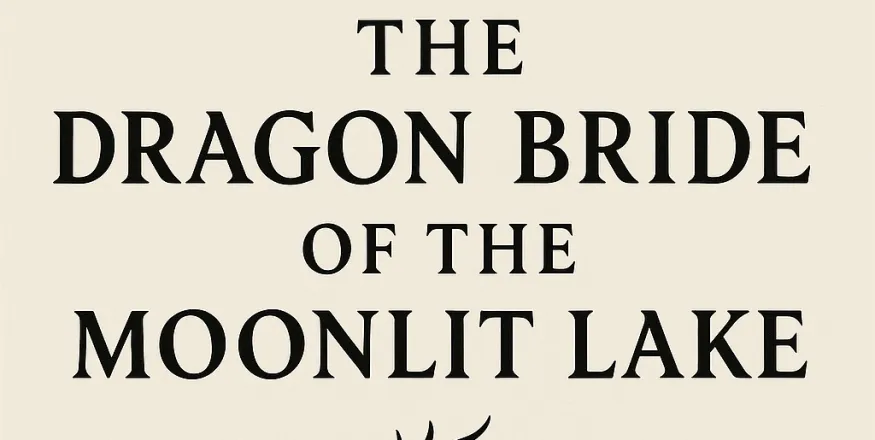Long before she was chosen, before the silver moon marked her fate, Aika was a child of quiet things.
She grew up in the shadow of Tsukihara-no-Mizu, the Lake of the Moonfield, in a village where seasons passed like whispered prayers and every household knew the names of the kami by heart. Her parents were modest servants in the house of Lord Nakamura, keepers of scrolls and candles, and Aika was born in the storerooms of silence — where the rustle of silk was louder than voices, and obedience was taught in glances, not words.
From the time she could walk, Aika was drawn to the lake.
She would sit at its edge for hours, watching cranes lift their wings in slow, sacred dances, or drop stones into its glassy surface and whisper secrets to the ripples. The other children called her strange — always staring into the water, humming songs no one else knew. Her mother, fearful of superstition, would scold her gently. “Do not call to the spirits, Aika. They may answer.”
But the lake was never cruel to her. It shimmered like a mirror to the heavens, and sometimes — just sometimes — she thought she saw silver eyes in the deep.
The villagers told stories of course. They always did.
They said a god lived in the lake — a great mizuryuu, a water dragon with scales like moonlight and a temper like the sea. In the old days, he protected the valley from storms and droughts, taught fishermen where to cast their nets and farmers when to sow their seeds. But the dragon's kindness came at a price. Once every half-century, he would demand a bride — a girl pure of soul and untouched by worldly ties. The chosen would be dressed in white and rowed to the center of the lake under the light of the seventh silver moon. She would vanish beneath the surface, never to be seen again.
No one knew what became of the brides. Some said they became queens in an underwater palace of coral and pearl. Others whispered darker things — that they were swallowed whole, bones resting on the lakebed like lilies.
It had been forty-nine years since the last offering.
Aika, sixteen that spring, was still a handmaiden in the Nakamura estate. She had learned to sweep without leaving dust, to speak only when spoken to, and to bow low enough to vanish. But behind her quiet eyes lived dreams of stories — dreams she never dared voice. She still returned to the lake when she could, still sang to the water when no one watched.
Then the silver moon returned.
One night, it rose high and full, casting its glow over the still waters of Tsukihara-no-Mizu. And the village elders counted — one, two, three nights… until seven.
And so the choosing began.
The elders summoned every girl of age. They tested purity, asked questions wrapped in riddles, watched how each maiden stood beneath the moonlight. Noble daughters were considered. Servants were dismissed. And yet, at the end of it all, the oldest of them — a blind woman known as the Moon-Seer — raised a gnarled finger.
“That one,” she said, pointing at the girl standing furthest from the circle. “The lake has already heard her voice. It remembers her.”
Aika.
Her mother wept in silence. Lord Nakamura bowed his head with pride. The other girls averted their eyes.
No one argued.
Because to be chosen was an honor.
Because to be chosen was a death.
And Aika, barely sixteen, with the scent of spring still in her hair and songs still blooming in her throat, did not cry.
She only turned her eyes to the lake — and wondered if the silver eyes would be waiting for her.
ns216.73.216.85da2





















